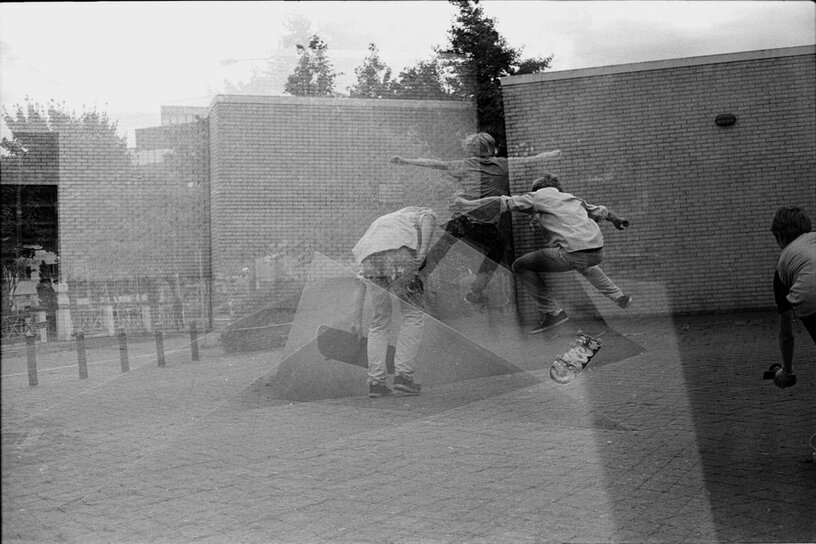|
soleir CC
The Principle of Gentleness There are seven fundamental principles of Judo. The first is ‘Physical Training.’ A father takes his son to Judo class on a Sunday morning. The boy doesn’t really enjoy sports, much preferring to be indoors watching Thundercats on TV, he doesn’t have many friends. The son will be picked on at school for being quiet, worries the father, who doesn't want to re-live his own childhood vicariously. Kids and parents sit on benches around the mats, waiting for the class to begin. The Sensei steps out to the middle of the mats, filling up the space, the room hushed before him. The father wishes he looked more like Sensei. He thinks that Sensei looks the way a father should look; he’s at ease, but ready to fight. He is motion at rest. This is ‘Shizentai’, the natural posture of Judo. The second principle. “Who wants a fight?” Sensei asks the kids at the class, who respond by rushing over and jumping on him. All except one. The boy looks at his father for a cue, some sort of instruction but receives none. It’s your choice are the words that pass silently between them. The boy gets up and runs to the mats. Arriving last of all he stands on the periphery of the melee, just slightly out of reach of the fun. The same way he’ll stand at so many parties as he gets older. ‘Courtesy’ is the third principle: everything in Judo must begin and end with respect. Only through courtesy can we recognise the dignity of another’s personality. ‘Sen’ is the fourth principle, meaning to take the initiative. *** The fifth principle - ‘Kusushi’ (breaking balance). In Judo, victory or defeat is attained through ‘Kuzushi.’ It is the manner in which balance is destroyed, leaving the combatant in a vulnerable state. Years after Judo lessons have come to an end, the father and son take a holiday together in Barcelona. The father has tried to worry less about his son as the years have passed. The boy being picked on at school, having no friends. None of these fears came true. Instead, new ones sprang up in their place, multiplying like gremlins. The son is a teacher now. He still watches retro cartoons from the eighties. But they have more in common than the father ever thought they would. They both like pulling the wings off a roast chicken. They both listen to Tom Petty, read Stephen King. They’re both lousy at assembling furniture. They talk comfortably of nothing in particular while crammed in at the bar at El Xampanyet, eating boquerones and croquetas, their glasses generously refilled with the sparkling wine for which the place is named. The father feels unsteady for a moment on his feet. Just the wine, he tells himself, just the heat, it’s crowded in here. Getting old, he tells himself. He’s feeling much worse by the time they leave but says nothing to his son, doesn’t want to spoil the trip. The sixth principle of Judo is ‘Stability.’ A man falls easily if his centre of gravity is disturbed by an external force; it can be something as minor as stepping on a pebble. After the father’s first stroke, he makes a reasonable recovery, with some loss of movement. He is still able to live alone, until the first time he forgets who his son is. “Have you come for the newspapers?” he asks him one day, his face blank and lolling and expectant, like a good-natured old Beagle, but nothing like the man his son knows. The seventh principle, ‘The Principle of Gentleness’ is the overarching concept of Judo. It means that victory is not won by applying superior force but rather by utilising the force applied by an opponent. If your opponent steps towards you, you take a bigger step backwards and take him with you, using his own force to break his balance. The son visits his father in the care home. He speaks to him as he always did, regards him with the same dignity. Tries to recognise him. “There’s a thief coming in to my bedroom at night.” The father says. “He wears a cap on his head.” He’s describing his son, the uniform he used to wear to school. It is not the first time he’s said this. The son fights the urge to shout at him, “No there isn’t! You’re talking about me.” But he doesn’t. Instead he plumps his dad’s pillow and props him up so he can see the TV which plays on mute all day. Then he refills the plastic cup of water by his bedside, and says he’ll get the nurses to look into it. He thinks of a passage he once read: Death does not send you any letter, he comes sneaking just like a thief. Perhaps the thief is real, and his father senses him getting closer to his prize. But death has already sent them a letter; he sent it to El Xampanyet on that warm night in Barcelona. Now Death is just waiting for the man to fall gently into his arms. Death is late for his own party, and where - thinks the boy - exactly, is the courtesy in that? Rick White lives and writes in Manchester, UK. His work has been published in Storgy, Barren Magazine and Anti-Heroin Chic among others. @ricketywhite Comments are closed.
|
AuthorWrite something about yourself. No need to be fancy, just an overview. Archives
April 2024
Categories |

 RSS Feed
RSS Feed
